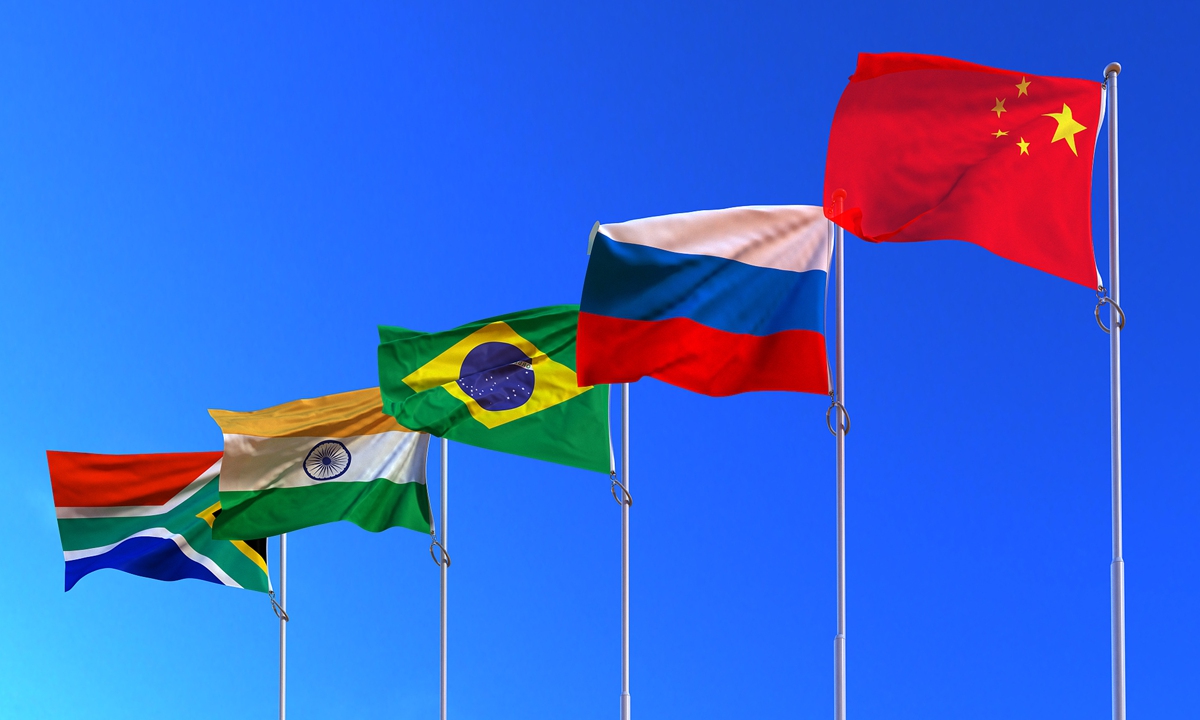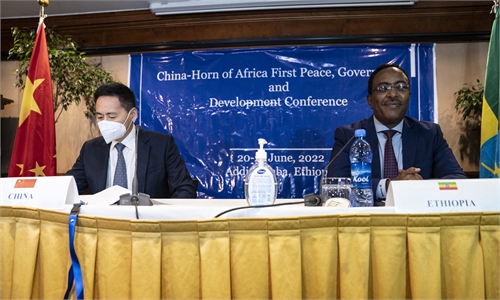
BRICS Photo: CFP
The BRICS countries, as a group of emerging economies, are very important when it comes to advancing global governance. From being followers to leaders, the BRICS' collective discourse power in the field of global governance has been growing.
Two phenomena are worth mentioning at this year's BRICS Summit. First, this year, Western developed countries have stepped up efforts to build a new exclusive multilateral mechanism, with the intention to sidestep the G20, exclude BRICS and reshape the Western-led world order. BRICS members are encountering severe challenges. Second, in terms of the ongoing Ukraine crisis, except for Russia which is a party to the conflict, none of the other four BRICS members have followed the West in imposing sanctions on Russia. This indicates that the BRICS countries are forming the basis for consensus and common interests on major international events.
Since the outbreak of the novel coronavirus pandemic, BRICS economies have been affected to varying degrees, which in turn has led to a partial fragmenting of global politics. A prominent example is India's participation in Quad Summit with the US, Japan, Australia as well as the Indo-Pacific Economic Framework. Even so, India has still resisted US pressure and maintained good relations with Russia. Can BRICS countries overcome challenges such as economic difficulties and political polarization, and continue to lead the trend of globalization and global governance? The answer is yes. The basic interests, values and rules of the BRICS countries are generally consistent, representing the direction of the international order, which is peace, development, cooperation, and win-win results. The current difficulties and challenges are partial, temporary, and surmountable.
The common aspirations of the BRICS countries are to change the unreasonable status quo in the current global governance system, which contains the colonialist factors left over from history and the hegemonic phenomenon that exists in reality.
The basic trend of BRICS countries participating in global economic governance is to carry out reforms while maintaining the stability of old governance mechanisms, and build a new governance mechanism according to new objective requirements. Compared with the closed and old-fashioned G7 mechanism, BRICS countries should reflect the direction and potential of future development and expand more space in the field of global governance.
The construction of a new global governance system will be carried out across four levels: the UN system, the G20, BRICS Plus, and regional mechanisms. Among them, the UN system will transform from the post-World War II governance mechanism of great powers to the global governance system of the 21st century. Climate change and public health have become urgent governance issues. The G20, the main body of the global macroeconomic coordination mechanism jointly carried out by developed and emerging economies, was prominent during the 2008 financial crisis. In the face of new global inflation and supply chain problems, its institutionalization must continue to advance. "BRICS Plus" is the development and innovation of BRICS countries, and is a group of emerging powers that is establishing, adding new impetus to the reform of the global governance mechanism.
The two blocs in the existing international landscape, namely, the group of Western developed countries and the one of emerging countries, are not the two opposing camps formed during the Cold War, nor are the two closed groups. In the process of globalization and global governance, they have formed a complementary relationship. They cannot decouple from each other, nor can they take each other's place. The phenomenon of the two groups coexisting will become a long-term trend.
It is long-term and urgent for the BRICS countries to enhance their discourse power in global governance. For example, the international monetary system is dominated by developed countries. The irrationality of such structure is evident. Worse still, hegemonic countries exploit their status in the international reserve currency and international settlement system to suppress emerging economies. These hegemonic countries puts their own economic interests and monetary policies above the interests of others. Either its deflation or inflation that will lead to disastrous consequences including financial crisis or asset bubbles to emerging and developing countries. The damage it triggers will be no less than a large-scale war. Even many developed countries cannot avoid the damage caused. Both the euro and the yen have been affected before. A similar situation remains in global governance mechanisms in other fields.
No matter how big the obstacles and crises are, the BRICS countries will not stop striving to establish a more equitable and rational global governance environment. Maintain existing development momentum, seize the rare historical opportunity, and enhance the global governance capacity and share of voice. This year's BRICS summit will display the potential of a new future .
The author is executive vice dean of Fudan Institute of Belt and Road & Global Governance. opinion@globaltimes.com.cn

